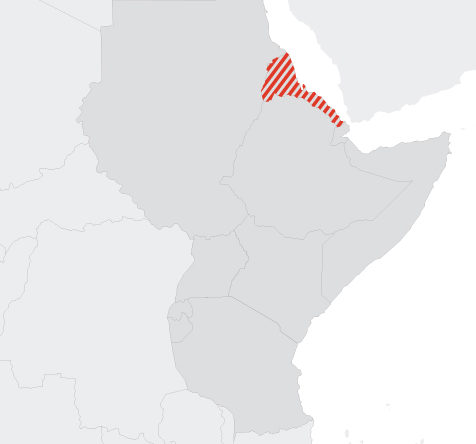Geneva-Kampala, 6 July 2018 — The UN Human Rights Council (“the Council”) showed its resolve to address the crimes committed in Eritrea by extending the mandate of its top expert on the country today. A new Special Rapporteur on Eritrea will soon succeed Ms. Sheila Keetharuth, who has served for six years on the position and played a key role in shining a light on the country’s human rights record, which remains one of the most abysmal in the world.
“It was essential for the UN to make sure that crimes for which the Eritrean government is responsible continue to be documented and exposed,” said Hassan Shire, Executive Director of DefendDefenders. “Some of the violations may amount to crimes against humanity, for which there must be accountability.
”
Today’s resolution, which was adopted by consensus (i.e., without any opposition), sends a strong message to the Eritrean government. It will ensure continued UN reporting on Eritrea’s human rights record, ongoing support to the victims and their families, and assistance to national justice systems that may prosecute government and other officials responsible for crimes such as torture or enslavement.
“We call on all states to prosecute these horrendous crimes, including through the use of universal jurisdiction,” said Helen Kidan, Head of Advocacy at the Eritrean Movement for Democracy and Human Rights (EMDHR). “The Special Rapporteur and the Office of the UN High Commissioner for Human Rights should stand ready to assist in this process, including by sharing legal expertise and investigative findings.
”
The human rights situation in Eritrea will be under the UN spotlight throughout the next 12 months. It will be discussed in an interactive dialogue at the UN General Assembly in October 2018 and in interactive dialogues (including one “enhanced” dialogue) at the Human Rights Council at its March and June 2019 sessions.
In 2012, the Council established a Special Rapporteur mandate in order to monitor and report on the human rights situation in the country. This mandate has since been renewed annually. Additionally, in 2016, an independent Commission of Inquiry concluded that it had “reasonable grounds to believe that crimes against humanity, namely, enslavement, imprisonment, enforced disappearance, torture, other inhumane acts, persecution, rape and murder, ha[d] been committed in Eritrea since 1991.”
Ahead of the Council’s 38th regular session (18 June-6 July 2018), DefendDefenders coordinated a civil society call on the Council to continue addressing the situation in Eritrea, and outlined options for the Special Rapporteur, including to advance accountability.

